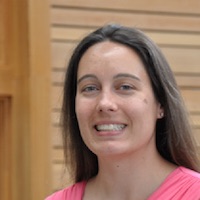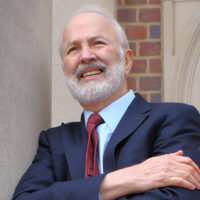Gillings School experts named to Clarivate's 2022 Highly Cited Researchers List
November 15, 2022
Clarivate has named 14 academics from the UNC Gillings School of Global Public Health to their 2022 list of Highly Cited Researchers™.
Since 2001, the Highly Cited Researchers list has identified global research scientists and social scientists who have demonstrated exceptional influence – reflected through their publication of multiple papers frequently cited by their peers during the last decade. The list uses both quantitative and qualitative analysis to identify individuals from across the globe who have demonstrated significant and broad influence in their chosen field or fields of research.
The preliminary list of Highly Cited Researchers is drawn from the highly cited papers that rank in the top 1% by citations for field and publication year in the Web of Science™ citation index over the past decade. The list also identifies the research institutions and regions where they are based. The methodology that determines the “who’s who” of influential researchers draws on the data and analysis performed by bibliometric experts and data scientists at the Institute for Scientific Information™ at Clarivate.
From the Gillings School, those faculty include:

Dr. Ralph Baric
Ralph S. Baric, PhD, William R. Kenan, Jr. Distinguished Professor of epidemiology. Baric has spent the past three decades as a world leader in the study of coronaviruses and is responsible for UNC-Chapel Hill’s world leadership in coronavirus research.

Dr. Noel Brewer
Noel T. Brewer, PhD, Gillings Distinguished Professor in Public Health and professor of health behavior. Brewer’s research explores why people engage in vaccination, vaping and other health behaviors that prevent cancer.

Dr. Stephen Cole
Stephen R. Cole, PhD, professor of epidemiology. Cole works to build accurate and impactful knowledge at the intersection of epidemiology, statistics, and causal inference.

Dr. Kelly Evenson
Kelly R. Evenson, PhD, professor of epidemiology. Evenson’s research focuses on physical activity and sedentary behavior epidemiology, with specific interests in measurement, surveillance, guideline development and associations with outcomes.

Dr. Rachel Graham
Rachel Graham, PhD, assistant professor of epidemiology. Graham’s research areas include coronavirus replication fidelity, viral genome recombination, candidate live-attenuated vaccine design, and phylogenetic and molecular analyses of coronavirus genomes as they emerge and adapt to novel hosts.

Dr. Lisa Gralinksi
Lisa Gralinski, PhD, assistant professor of epidemiology. Gralinski’s research explores the interaction of highly pathogenic human coronaviruses with the host immune system. In particular, she is interested in how these interactions can lead to the resolution of virus infection or alternatively lead to virus-induced, immune-mediated disease.

Dr. Sarah R. Leist
Sarah Leist, PhD, research associate in epidemiology. As part of the Baric Lab, Leist develops mouse models for COVID-19 research and studies virus-host interaction and the influence of host genetics on respiratory virus infections and disease outcomes.

Dr. Hans Paerl
Hans W. Paerl, PhD, professor of marine and environmental sciences and engineering and William R. Kenan, Jr. Distinguished Professor at UNC’s Institute of Marine Sciences. Paerl’s research specializes in water quality, eutrophication, harmful algal bloom and food web dynamics of freshwater and marine ecosystems — locally, nationally and internationally.

Dr. Barry Popkin
Barry M. Popkin, PhD, William R. Kenan, Jr. Distinguished Professor of nutrition. Popkin’s research focuses currently on large-scale regulatory actions to reduce consumption of ultra-processed food, including research to support policy and evaluations of policies across low- and middle-income countries. In addition, he does work to further his concept of the nutrition transition and his concept of the double burden of malnutrition, including drivers and health consequences.

Dr. Bryce Reeve
Bryce Reeve, PhD, is professor of population health sciences and Pediatrics within the Duke University School of Medicine, where he directs the Center for Health Measurement. He is also an adjunct professor of health policy and management at the Gillings School. Reeve’s areas of expertise are in developing patient-reported questionnaires using qualitative and quantitative methodologies and the integration of patient-reported data in research and healthcare delivery to inform decision-making.

Dr. Kurt Ribisl
Kurt Ribisl, PhD, chair and Jo Anne Earp Distinguished Professor of health behavior. Ribisl’s primary research interest is evaluating and improving the reach of population-level efforts to reduce tobacco use, with a particular emphasis on policy and information technology. He specializes in studying policy issues related to the sales and marketing of tobacco products at the point of sale and on the Internet.

Dr. Alexandra Schaefer
Alexandra Schaefer, PhD, assistant professor of epidemiology. Schaefer’s work focuses on identifying quantitative trait loci, genes and alleles that regulate emerging viral pathogenesis and immunity and the role of these loci in pathogenesis. A major goal is to identify and study common genes and polymorphisms that regulate emerging virus disease severity across species.

Dr. Timothy Sheahan
Timothy Sheahan, PhD, assistant professor of epidemiology. Sheahan’s research focuses on better understanding how viruses jump into humans, developing new models to study how emerging viruses cause disease, and identifying drugs, antibodies and vaccines for the emerging viruses of today and the future.

Dr. Amy Sims
Amy Sims, PhD, associate professor of epidemiology. Sims is a research scientist at the Pacific Northwest National Laboratory who collaborated with Baric to understand the host-pathogen interactions of highly pathogenic human coronaviruses and to identify novel vaccination strategies and therapeutic targets.
The methodology that determines the “who’s who” of influential researchers draws on the data and analysis performed by bibliometric experts and data scientists at the Institute for Scientific Information™ at Clarivate. It also uses the tallies to identify the countries and research institutions where these citation elite are based.
See the full 2022 Highly Cited Researchers list and executive summary and learn more about the methodology.
Contact the UNC Gillings School of Global Public Health communications team at sphcomm@unc.edu.
